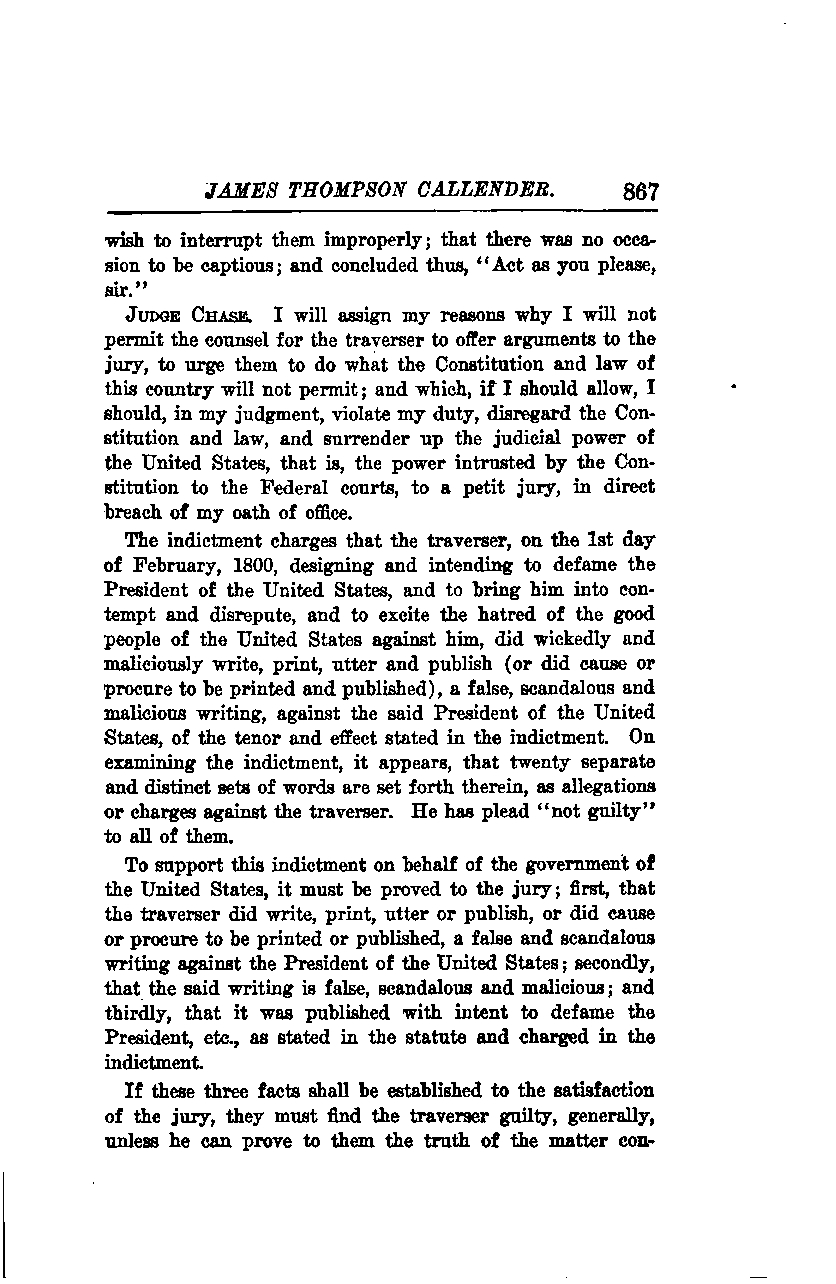
Here is the translated text as follows:
JAMES THOMPSON CALLENDER
I wish to interrupt them improperly; there was no occasion to be captious, and concluded thus, "Act as you please, sir."
Judge Chase, I will assign my reasons why I will not permit the counsel for the traverser to offer arguments to the jury, urging them to do what the Constitution and law of this country will not permit. If I should allow it, I would, in my judgment, violate my duty, disregard the Constitution and law, and surrender the judicial power of the United States—that is, the power entrusted by the Constitution to the Federal courts—to a petit jury, in direct breach of my oath of office.
The indictment charges that the traverser, on the 1st day of February, 1800, designed and intended to defame the President of the United States, to bring him into contempt and disrepute, and to excite the hatred of the good people of the United States against him. He did wickedly and maliciously write, print, utter, and publish (or did cause or procure to be printed and published) a false, scandalous, and malicious writing against the said President of the United States, of the tenor and effect stated in the indictment. Upon examining the indictment, it appears that twenty separate and distinct sets of words are set forth therein as allegations or charges against the traverser. He has pleaded "not guilty" to all of them.
To support this indictment on behalf of the government of the United States, it must be proved to the jury: first, that the traverser did write, print, utter, or publish, or did cause or procure to be printed or published, a false and scandalous writing against the President of the United States; secondly, that the said writing is false, scandalous, and malicious; and thirdly, that it was published with intent to defame the President, etc., as stated in the statute and charged in the indictment.
If these three facts shall be established to the satisfaction of the jury, they must find the traverser guilty, generally, unless he can prove to them the truth of the matter contained therein.